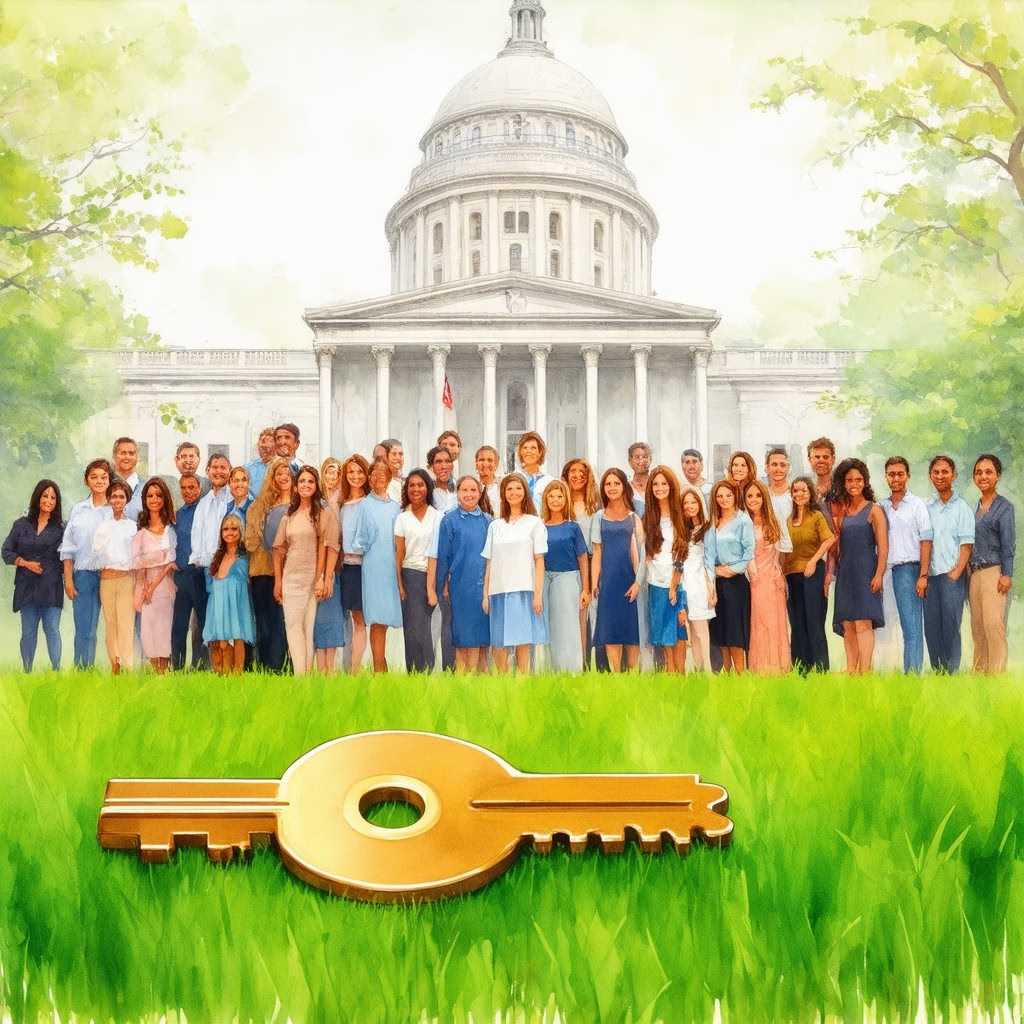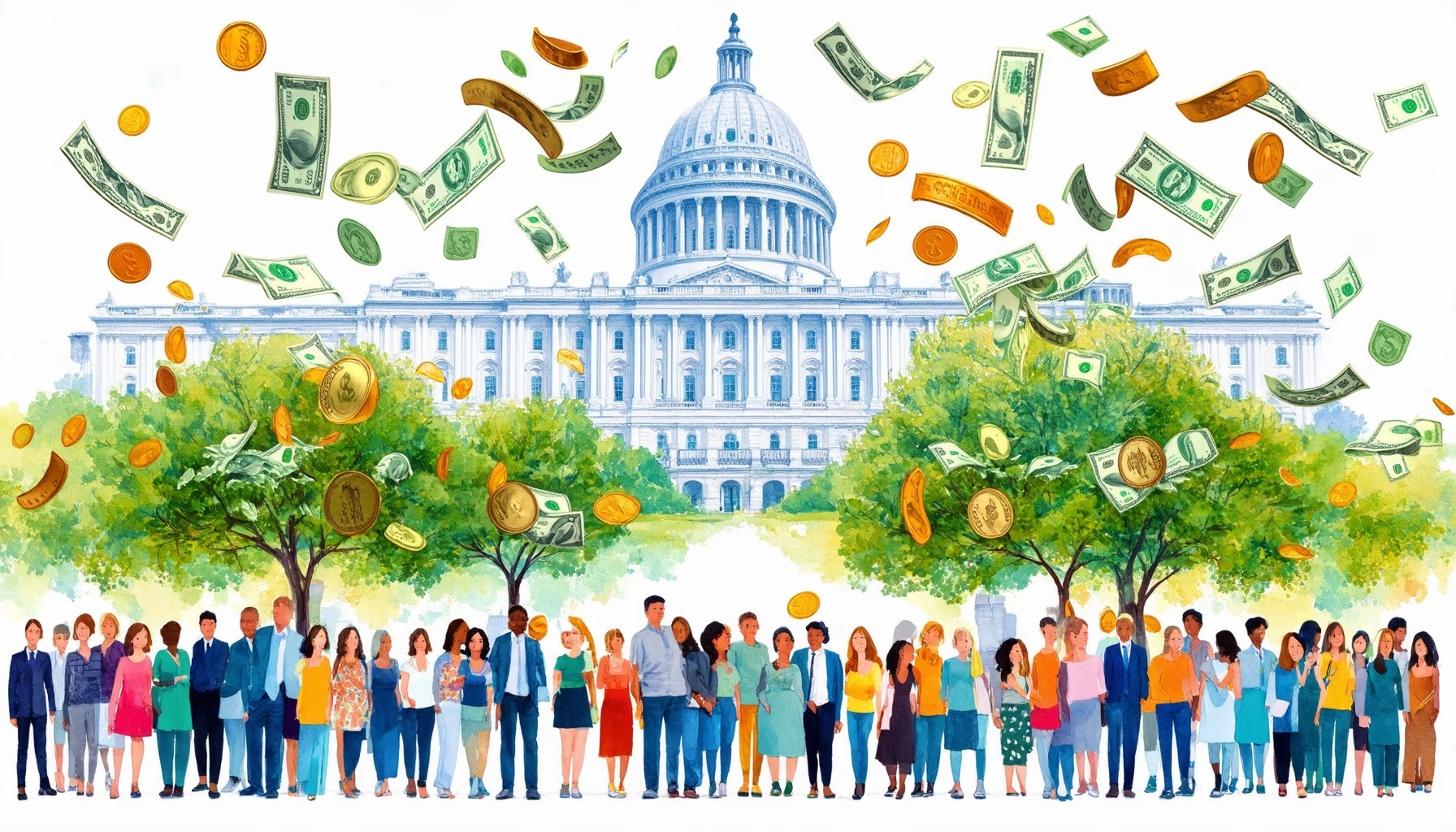Key Takeaways
- Explore a variety of government assistance programs designed to alleviate financial burdens for individuals and families.
- Understand financial assistance options such as TANF and SNAP, which provide vital support during economic hardships.
- Discover first-time home buyer programs that offer down payment assistance and favorable loan terms to help achieve homeownership.
- Learn how to navigate the eligibility requirements for various government cash assistance programs to access necessary support.
- Utilize free resources from the government, including healthcare, food assistance, and housing support, to improve your quality of life.
In today’s economic landscape, understanding the help of the government can be a game-changer for individuals and families seeking financial stability. This comprehensive guide, titled Exploring the Help of the Government: Your Guide to Financial Assistance and First-Time Home Buyer Programs, aims to illuminate the various government assistance programs available to you. From exploring financial assistance options to uncovering government debt relief programs, we will delve into the types of support that can ease your financial burdens. Additionally, we will highlight the first-time home buyer government programs designed to help you achieve your dream of homeownership. Whether you are curious about what free resources you can access or how to qualify for specific government cash assistance programs, this article will provide you with the insights you need to navigate the available options effectively. Join us as we explore the vital role of government support in enhancing your financial well-being.
Understanding Government Assistance Programs
Government assistance is commonly referred to as “welfare” or “public assistance.” This encompasses various programs designed to support individuals and families facing financial difficulties. Key forms of government help include:
- Temporary Assistance for Needy Families (TANF): This program provides financial assistance and support services to low-income families with children. TANF aims to help families achieve self-sufficiency through job preparation, work, and marriage.
- Supplemental Nutrition Assistance Program (SNAP): Formerly known as food stamps, SNAP offers nutritional assistance to eligible low-income individuals and families, helping them purchase food.
- Medicaid: This program provides health coverage to low-income individuals, including families, children, pregnant women, elderly individuals, and people with disabilities.
- Housing Assistance: Programs such as Section 8 provide rental assistance to low-income families, helping them afford safe and decent housing.
- Unemployment Benefits: These benefits support individuals who have lost their jobs through no fault of their own, providing temporary financial assistance while they seek new employment.
For more detailed information on government assistance programs, you can visit USA.gov, which offers resources and guidance on accessing these benefits. Additionally, the U.S. Department of Housing and Urban Development provides comprehensive information on TANF and other welfare programs, ensuring that families can find the support they need during challenging times.
Types of Government Help Available
There are several types of government help available to assist individuals and families in need. Understanding these options can empower you to seek the support that best fits your situation. Here are some of the primary categories of government assistance:
- Financial Assistance Programs: These include cash assistance programs like TANF and unemployment benefits that provide direct financial support to those in need.
- Nutritional Support: Programs like SNAP help ensure that low-income families have access to healthy food options.
- Healthcare Services: Medicaid and other health programs offer essential medical coverage for eligible individuals, reducing the financial burden of healthcare costs.
- Housing Support: Government programs for first-time home buyers, such as the government first-time home buyer grant, assist individuals in purchasing homes and securing stable housing.
By exploring these various types of government help, you can identify the resources that may be available to you or your family, ensuring that you receive the necessary support during difficult times.

Exploring Financial Assistance Options
If you’re facing financial difficulties, understanding the various forms of government help available can be crucial. Government assistance programs are designed to provide support to individuals and families in need, helping them navigate through tough times. This section delves into the different types of financial assistance options you can explore.
Government Cash Assistance Programs
Government cash assistance programs are vital resources for individuals struggling financially. These programs can provide immediate relief and help cover essential expenses. If you’re struggling financially, there are several avenues you can explore to obtain assistance:
- Reach Out to Family and Friends: Personal connections can often provide immediate support. Be honest about your situation and consider discussing repayment options if you borrow money.
- Sell Unwanted Items: Look around your home for items you no longer need. Platforms like eBay, Facebook Marketplace, and Craigslist can help you sell these items quickly, providing you with some extra cash.
- Consider a Personal Loan: Research local banks or credit unions that offer personal loans with reasonable interest rates. Ensure you understand the terms and repayment schedule before proceeding.
- Credit Card Cash Advance: If you have a credit card, you may be able to take a cash advance. However, be cautious of high-interest rates and fees associated with this option.
- Request an Advance from Your Employer: If you’re currently employed, consider asking your employer for a salary advance. This can provide immediate relief without the need for loans.
- Explore Government Assistance Programs: Various government programs can provide financial aid for those in need. Websites like Benefits.gov can help you find programs that you may qualify for, including unemployment benefits, food assistance, and housing support.
- Community Resources: Local charities and non-profits often offer financial assistance or resources for those struggling. Organizations like the Salvation Army or United Way can provide support or direct you to other resources.
- Financial Counseling: Seek advice from a financial counselor who can help you create a budget, manage debt, and explore additional resources tailored to your situation.
By utilizing these strategies, you can find the financial support you need during challenging times. Always ensure to evaluate the terms and implications of any financial decision you make.
Do I Qualify for Any Government Assistance?
Determining your eligibility for government assistance programs is a critical step in accessing the help you need. Various factors influence eligibility, including income level, family size, and specific needs. Here are some key points to consider:
- Income Requirements: Most government assistance programs have income limits. Check the specific requirements for each program to see if your income qualifies.
- Family Size: Assistance levels often vary based on the number of individuals in your household. Larger families may qualify for more substantial support.
- Specific Needs: Some programs target specific needs, such as housing, food, or medical expenses. Identify your primary needs to find the most relevant assistance options.
- Application Process: Each program has its application process. Ensure you have the necessary documentation, such as proof of income and identification, to streamline your application.
For more detailed information on eligibility and to explore available programs, visit USA.gov or consult local government resources.
Understanding Government Assistance Programs
Government assistance programs play a crucial role in providing support to individuals and families facing financial hardships. These programs are designed to alleviate economic burdens and ensure that citizens have access to essential resources. By understanding the various types of government help available, you can better navigate the options suited to your needs.
Overview of Government Assistance
Government assistance encompasses a wide range of programs aimed at supporting citizens in need. These programs can include financial aid, housing assistance, food support, and healthcare services. The primary goal is to provide a safety net for those who may be struggling due to unemployment, low income, or unexpected expenses. Many of these programs are funded by federal, state, and local governments, ensuring that help is accessible to those who qualify.
Types of Government Help Available
There are several types of government assistance programs designed to address various needs:
- Financial Assistance Programs: These include government cash assistance programs that provide direct monetary support to individuals and families facing financial difficulties. Programs like Temporary Assistance for Needy Families (TANF) and Supplemental Security Income (SSI) are examples of financial aid available.
- Housing Assistance: Government programs for first-time home buyers, such as the government first-time home buyer grant, help individuals secure affordable housing. These programs often provide down payment assistance and favorable loan terms to make homeownership more attainable.
- Food Assistance: Programs like the Supplemental Nutrition Assistance Program (SNAP) offer food benefits to low-income families, ensuring they have access to nutritious meals.
- Healthcare Support: Government health programs, including Medicaid and Medicare, provide essential medical coverage for eligible individuals, reducing the financial burden of healthcare costs.
For more detailed insights on specific programs, you can explore resources such as U.S. Department of Housing and Urban Development and USA.gov.
Accessing Free Government Resources
Government benefits and free resources available to citizens can significantly improve quality of life. Here are some key areas where you can access free assistance from the government:
- Food Assistance: Programs like the Supplemental Nutrition Assistance Program (SNAP) provide financial assistance for purchasing food. According to the USDA, SNAP helps millions of Americans afford nutritious food.
- Health Insurance: The Affordable Care Act (ACA) offers free or low-cost health insurance options through Medicaid and the Children’s Health Insurance Program (CHIP). These programs are designed to ensure that low-income families have access to necessary medical care.
- Housing Assistance: The U.S. Department of Housing and Urban Development (HUD) provides various programs, including public housing and housing choice vouchers, to help low-income individuals and families secure affordable housing.
- Utility Bill Assistance: The Low Income Home Energy Assistance Program (LIHEAP) helps eligible households pay for heating and cooling costs. This program is crucial for maintaining safe living conditions, especially during extreme weather.
- Welfare and Financial Assistance: Temporary Assistance for Needy Families (TANF) offers financial support to families in need, helping them achieve self-sufficiency. This program is vital for those facing economic hardships.
- Social Security Benefits: Social Security provides financial assistance to retirees, disabled individuals, and survivors of deceased workers. This program is a cornerstone of financial security for millions of Americans.
- Government Checks and Payments: Various programs, including unemployment benefits and stimulus checks, provide direct financial support to individuals facing economic challenges.
For more detailed information on these benefits, you can visit USAGov, which serves as a comprehensive resource for government services and assistance programs.
What Free Stuff Can I Get from the Government?
In addition to the essential services mentioned, there are various free resources and benefits that you can access through government programs. Here’s a list of some of the most common free assistance options:
- Education Grants: The government offers grants for education, including Pell Grants for low-income students, which do not need to be repaid.
- Free Legal Aid: Many states provide free legal assistance for low-income individuals facing civil legal issues, ensuring access to justice.
- Job Training Programs: Various government-funded job training programs are available to help individuals gain skills and find employment.
- Childcare Assistance: Programs like the Child Care and Development Fund (CCDF) help families afford childcare services, allowing parents to work or attend school.
- Transportation Assistance: Some local governments offer free or reduced-fare public transportation options for low-income residents.
These resources can provide significant support, helping you improve your financial situation and overall quality of life. For more information on accessing these benefits, consider visiting Consumer Financial Protection Bureau for guidance on financial assistance programs.

Understanding Government Support Terminology
When discussing the various forms of assistance provided by governmental entities, it’s essential to understand the terminology associated with government support. A synonym for “government support” is “government assistance.” Other terms that can be used interchangeably include “public aid,” “state aid,” “government funding,” and “subsidy.” These terms refer to various forms of financial or logistical support provided by governmental entities to individuals, organizations, or sectors in need.
Common Terms Related to Government Assistance
- Government Assistance: This term broadly encompasses all forms of aid provided by the government to help individuals and families in need.
- Public Aid: Often refers to welfare programs designed to assist low-income individuals and families, ensuring they have access to basic necessities.
- State Aid: Similar to public aid, this term is used to describe assistance programs funded by state governments.
- Government Funding: This term can refer to grants or financial resources allocated for specific projects or initiatives, such as education or infrastructure.
- Subsidy: Typically indicates financial assistance aimed at promoting economic activities, such as agriculture or renewable energy.
Synonyms for Government Support
Understanding these synonyms can enhance communication regarding governmental financial support and its implications in various contexts, such as economic policy, social services, and community development. By familiarizing yourself with these terms, you can better navigate the landscape of government assistance programs and identify the resources available to you.
For more information on government assistance programs, visit USA.gov or explore specific resources like U.S. Department of Housing and Urban Development for housing-related support.
Exploring Government Services
Government services are commonly referred to as “public services” or “services of general interest.” These services are essential for the functioning of society and are typically provided by government entities at various levels—local, state, and federal. The scope of public services can vary by country but generally includes the following key areas:
- Judicial Services: Courts and legal systems that ensure justice and uphold the rule of law.
- Education: Public schooling systems, universities, and vocational training programs aimed at providing accessible education to all citizens.
- Healthcare: Public health services, hospitals, and clinics that offer medical care and promote public health initiatives.
- Public Safety: Emergency services, including police, fire departments, and emergency medical services, which protect citizens and respond to crises.
- Infrastructure: Maintenance and development of public infrastructure such as roads, bridges, and public transportation systems.
- Utilities: Essential services like electricity, water supply, and waste management that support daily living.
- Social Services: Programs designed to support vulnerable populations, including welfare, housing assistance, and food security initiatives.
According to the European Commission, public services play a crucial role in ensuring social cohesion and economic stability. Additionally, the Organisation for Economic Co-operation and Development (OECD) emphasizes the importance of effective public service delivery in enhancing citizen trust and engagement.
Types of Government Services Available
Government services encompass a wide range of programs designed to assist citizens in various aspects of life. Here are some notable types:
- Housing Assistance: Programs that provide support for low-income families, including government grants for first-time home buyers and U.S. Department of Housing and Urban Development resources.
- Healthcare Services: Access to public health initiatives and medical care through government-funded hospitals and clinics.
- Educational Programs: Funding for public schools and vocational training to ensure educational opportunities for all.
- Financial Assistance: Programs such as financial assistance for low-income families and assistance with utility bills.
Understanding the various types of government services available can empower individuals to access the support they need effectively. For more detailed guidance on navigating these services, resources like Gov Guider can provide valuable insights.
Government Programs for First-Time Home Buyers
Government programs for first-time home buyers are designed to make the process of purchasing a home more accessible and affordable. These initiatives often provide financial assistance, favorable loan terms, and educational resources to help new buyers navigate the complexities of homeownership. Understanding these programs can significantly benefit those looking to buy their first home.
Overview of First Time Home Buyer Programs Government Offers
The government offers various first-time home buyer programs that cater to different needs and circumstances. These programs typically include:
- Federal Housing Administration (FHA) Loans: These loans are popular among first-time buyers due to their lower down payment requirements and flexible credit score criteria. FHA loans allow buyers to secure financing with as little as 3.5% down.
- USDA Loans: For those looking to buy in rural areas, USDA loans provide 100% financing options, meaning no down payment is required. These loans are aimed at low to moderate-income buyers.
- VA Loans: Available to veterans and active-duty military personnel, VA loans offer favorable terms, including no down payment and no private mortgage insurance (PMI).
- State and Local Programs: Many states and municipalities offer their own first-time home buyer assistance programs, which may include down payment assistance, grants, and tax credits.
Help from the Government to Buy a House
In addition to loans, there are several forms of assistance available to help first-time home buyers:
- Down Payment Assistance: Many programs provide grants or forgivable loans to cover down payment costs, making it easier for buyers to enter the housing market.
- Homebuyer Education Courses: These courses, often required for certain assistance programs, educate buyers on the home buying process, budgeting, and maintaining a home.
- Tax Credits: Some states offer tax credits for first-time home buyers, which can help reduce the overall cost of purchasing a home.
For more detailed information on specific programs, you can explore resources like the U.S. Department of Housing and Urban Development and USA.gov.




